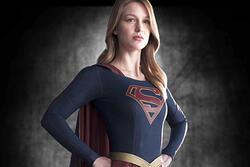Wanda Maximoff is a Powerful Woman, Like Lilith. Let’s Not Turn Her Into a Villain.
“You break the rules and become the hero. I do it, and I become the enemy. That doesn’t seem fair.”
These words, spoken by Wanda Maximoff (aka Scarlet Witch) in the official trailer for new film Dr. Strange in the Multiverse of Madness, have been echoing in my head since I heard them. What others might have heard as a villain origin story, I heard as a powerful woman pointing out the injustices leveled at her. Wanda was being villainized because people were scared of what her power could do to the status quo.
As a character in the Marvel Cinematic Universe (MCU), Wanda has had quite the evolution, and the theories being crafted about her character in this movie seem to be forgetting that. Wanda was introduced as a villain in the second Avengers movie, The Age of Ultron. She and her twin brother Pietro eventually join the heroes’ side, but in the final battle, her brother is killed. Vision, another superhero, supports Wanda through her grief, and the two fall in love. Unfortunately, Vision is eventually killed too. Wanda leaves the Avengers feeling angry that both Pietro and Vision sacrificed themselves for what was supposed to be the greater good.
That’s where the series WandaVision, an American sitcom-parody-turned-mystery, picks up. In her state of grief, Wanda creates an alternate reality where she can live with Vision in domestic bliss—something they didn't get to experience when Vision was alive. What Wanda doesn’t realize is that in creating this reality, she inadvertently took over a suburban town and trapped its citizens in her script. (In the MCU, creation cannot happen without some tether to reality, so when Wanda created her idealized life, it was directly tied to a physical town and all the people within it.) Wanda tries to ignore reality bumping up against her world, but once she realizes she is causing the citizens distress, she disbands the world she’d created.
The power of WandaVision was that it gave Wanda space to grieve, while allowing her to realize the full scope of her powers. She created an entire universe with the power of her grief, but when that power became destructive, she had to make difficult decisions.
Fear about a woman’s power is not a new phenomenon. In fact, it goes back millennia, to the time of Lilith. Lilith is described in some sources as Adam’s first wife and in others as a female demon. In the time of Creation, Lilith and Adam were made from the same clay, equals in every way, until Adam decided he wanted a subservient mate. When Lilith refused, she left Eden, choosing her own independence and power over submission to Adam. Traditionally Lilith can be read as a cautionary tale that reminds women to stay submissive. But if we re-examine her, Lilith is a woman with the power to re-establish world order, much like Wanda.
What does this mean for the portrayal of Wanda in the new movie? Speculation before an MCU movie or series premieres is common for fans. The long-awaited sequel for Dr. Stephen Strange, a neurosurgeon-turned-sorcerer with the power to manipulate time, is rumored to combine several characters from other movies. For this movie, the most pressing question I see is who will be the villain to Dr. Strange’s hero. Overwhelmingly, it comes down to Wanda—and that’s disappointing.
Now, I’m not opposed to seeing a female villain battle the often arrogant Strange, but Wanda being considered an obvious choice for a villain gave me pause. Because she caused people harm in WandaVision, many are quick to label her actions within the series as villainous. But it’s important to remember that Wanda’s mental control over others wasn’t intentional—it was an unfortunate side effect of her desire for a life with Vision. Once she realized she could not have that life without harming innocent people, she released them. No true supervillain would do that.
There’s an unfortunate double-standard at play here. When Dr. Strange repeatedly interferes in timelines and alters people’s memories, his actions are excused as necessary, even heroic. When Wanda does it, she’s villainized—much like Lilith, labeled as a temptress who leads people off the righteous path simply because she refuses to be ordered around by someone who was supposed to be her equal.
The trailer for Dr. Strange hints at another troubling idea. In it, viewers cannot quite tell if Wanda exists on this plane or within another reality of her own creation. Some have theorized that an outside force is controlling her—some other villain who is using Wanda as a puppet for his own means. This theory makes Wanda out to be an empty shell waiting for a male force to fill her and give her will, a common misogynistic trope across both realistic and fantasy stories. As if she needs someone else’s powers to make her do anything! Even in this instance, she cannot be a powerful villain in her own right—she has to be someone else’s pawn to explain why she’s so powerful.
To neatly pack Wanda back into the box of a villain essentially erases all the work that was done in WandaVision. What’s more, it reduces Wanda, a complex character, to someone one-dimensional. Why can’t we understand Wanda as a powerful being, rather than labeling her a hero or a villain?
It's easy to see the parallels between Wanda and Lilith. Lilith’s power and desire for autonomy had to be villainized to discourage women from calling for their own freedoms. Even unconsciously, Wanda’s powers disrupted the very fabric of reality—imagine what she could do consciously and with practice! Wanda could completely change the way the world operates, which, like Lilith, would terrify the patriarchy.
I hope I’m wrong, and that Wanda doesn’t turn out to have a villainous arc in the upcoming movie. If she does, that will only perpetuate the idea that powerful women, both mythical and real, are evil temptresses here to sway men to a dark path. Both Wanda and Lilith are wild and unkempt, and exist to show us what could be. If we begin to reject the labels that the patriarchy puts on us and claim our own power, imagine the world we could create.








so excited to see an article about scarlet witch on jwa -- i'd love to see another jwa article about wanda on here that delves into her jewish and romani heritage in all of the comic books ❤️
wow i love this